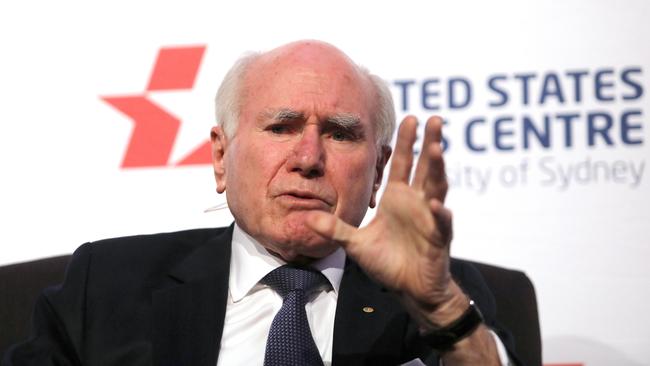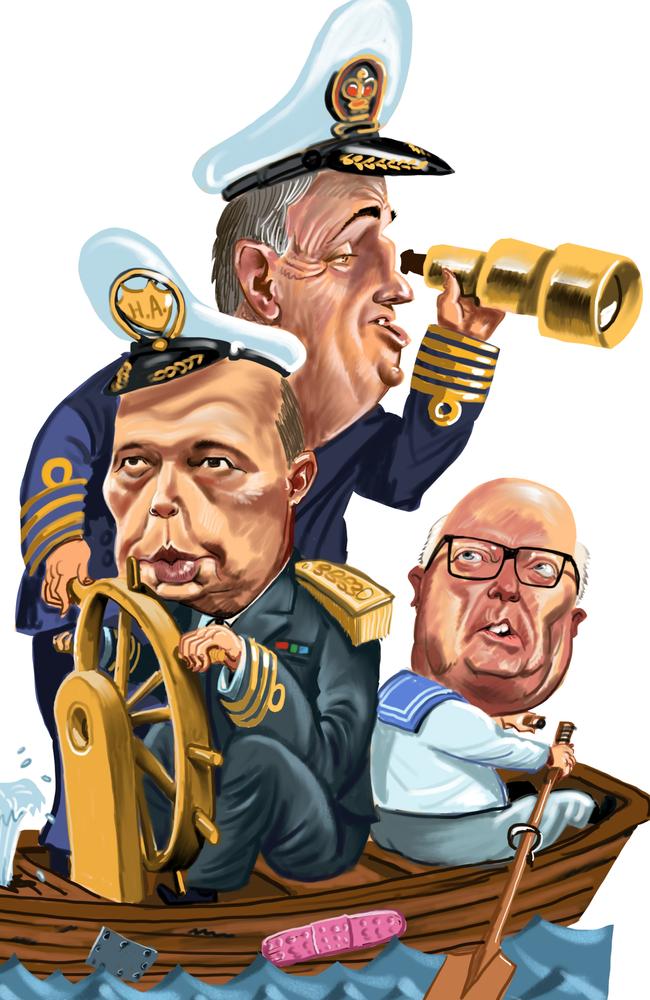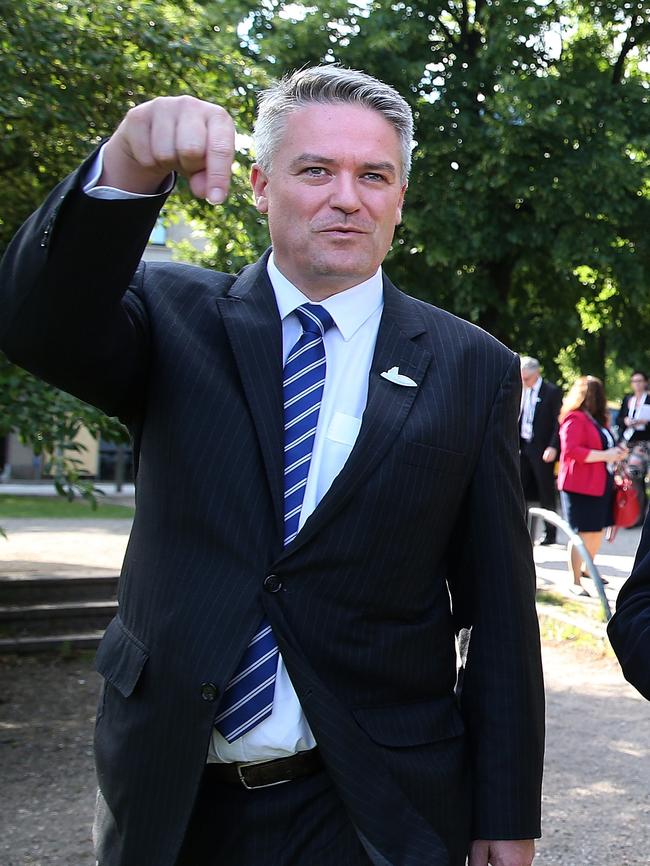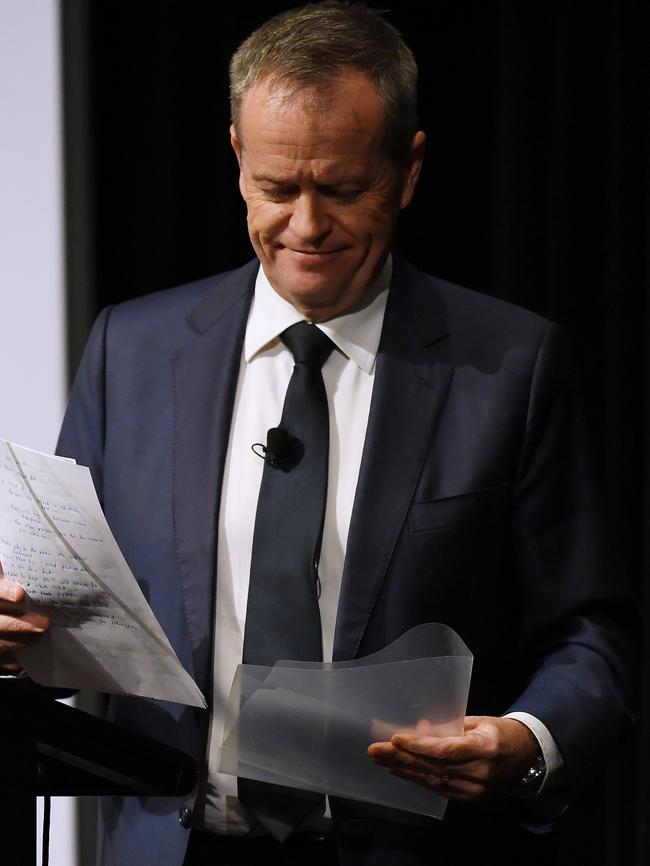Sharri Markson: How Malcolm Turnbull is righting the ship
IT might disappoint some Liberal MPs in marginal seats, but Malcolm Turnbull’s pragmatic approach offers much to the centre-right, writes Sharri Markson.

Opinion
Don't miss out on the headlines from Opinion. Followed categories will be added to My News.
MALCOLM Turnbull had an illuminating conversation with then Prime Minister John Howard in the lead-up to the 2007 federal election.
After claiming to have had a sleepless night three months before polling day, Turnbull raised the government’s difficult political position with Howard.
“He said he had been kept awake the previous night worrying that I might lose my seat at the election.
“He said that would be a terrible end to such a wonderful career,” Howard wrote in his autobiography, Lazarus Rising.

Turnbull was “nervous” about his electorate of Wentworth, then considered a marginal seat, where voters were opposed to Mr Howard’s stance on border protection, Iraq and some aspects of indigenous policy.
“Turnbull suggested that I consider resigning the leadership,” Howard wrote.
“This was different from the Malcolm Turnbull of a year earlier, who had been passionate that I should stay.”
Howard did not choose the option of “cowardice”, in the face of an ebullient Kevin Rudd, who looked like he would ride a wave of hope and optimism straight into office.

“I would rather go down fighting than desert on the eve of the battle,” he wrote. “The majority of the parliamentary party members still wanted me to lead them to the election, despite our dire electoral position.”
This week’s Home Affairs announcement was the penultimate policy the Right wanted, second only to possibly killing off gay marriage.
It’s an intriguing conversation to reflect on during the midwinter break, as Turnbull will need to find his own strategy to manage the anxieties of the 27 Coalition MPs who hold seats on a margin of under 6 per cent.
If the Newspoll trend proves irreversible in the face of a populist Corbyn-lite Bill Shorten, it will be fascinating psychologically, not just politically, to see whether the high-achieving Turnbull will stay and fight, or consider handing over to a successor in the months before voters head to the polls.

Right now, Turnbull is showing Jeffrey Horn-like stamina in his drive to lift the government’s standing in the polls. He is announcing bold policies, big ideas, to overturn his perceived weakness as a conservative.
If you examine Turnbull government positions so far, most of them are in keeping with mainstream Liberal values.
This week’s Home Affairs announcement was the penultimate policy the Right wanted, second only to possibly killing off gay marriage.
But analysis that Turnbull made this historical move for purely political reasons is simplistic and wrong. Turnbull had begun to think about a Home Affairs office from very early on in his prime ministership, with advice showing Australia was alone among Five Eyes nations in not having integrated intelligence agencies.
It’s a proposal that has been around for 16 years, ever since Kim Beazley adopted it as leader of the opposition, followed by Mark Latham, Kevin Rudd for a time and Tony Abbott.
Turnbull showed the backbone for which he is famous in resisting vehement objections from George Brandis and Julie Bishop, who had been successful in aborting the proposal under Abbott.
At Cabinet level there is the perception that the Right have great power under Turnbull. Over the years, Peter Dutton and Turnbull have never been particularly close. When Turnbull became Prime Minister, sources on the right claim he even considered demoting Dutton.
“It wouldn’t matter if he turned himself into Attila the Hun, they would still say that (he’s Labor-lite).”
Now Mathias Cormann has crucially helped shepherd legislation through the Senate, and Dutton, while carving out his own identity, has played an integral role in plugging any vulnerabilities in Turnbull’s leadership. Christopher Pyne’s influence, while ongoing, has been diluted, and Brandis has been all but publicly castrated.
Lately, Turnbull has flexed his conservative credentials, abolishing 457 visas, overhauling citizenship requirements, introducing shoot to kill laws and strengthening the Defence Act.
He allowed the automatic expiration of the temporary deficit levy, while cracking down on Safe Schools.
Yes, there’s the “second-best” Budget, the proposed Clean Energy Target, fully funding the NDIS, the superannuation policy ahead of the last election and adopting Labor’s position on Gonski.
The Coalition’s strategic advisers are a problem, too. These young inner-city staffers don’t understand the suburbs. They’re obsessed with Twitter. They have no families, no mortgages, no idea.
On balance, Turnbull has announced measures entirely consistent with a centre-right, “broad-church” Liberal government. Despite this, Turnbull won’t win the argument with conservatives loyal to Abbott.


“It wouldn’t matter if he turned himself into Attila the Hun, they would still say that (he’s Labor-lite) because they don’t believe he’s one of them,” one senior source said.
Abbott also had his own areas of moderate policy — the gold-plated parental leave scheme, the 2 per cent deficit levy and, according to sources on the Right, allowing Pyne to railroad him on Safe Schools.
It’s worth remembering Howard was, from time to time, criticised by conservatives for taking a moderate stance on policy. Think of his pragmatic rather than purist approach to stem cell research, allowing unused eggs to be used for research.
While his 1996 Budget was tough, those that followed included family tax policies that would today be regarded as welfare splurges.
On both the issue of the republic and the abortion pill RU486, Howard allowed a conscience vote to avoid a split in the party.
Where Turnbull differs from Howard and Abbott is in the effectiveness of his messaging.
Howard and Abbott were strong retail politicians. So is Bill Shorten.
To stop the government languishing in the polls, serious analysis needs to be done, while there is still time, on demographics feeling neglected and how to sharpen the message.
Much of Turnbull’s policy agenda is mainstream and reflective of core Liberal values, and MPs in marginal seats have plenty to sell. It’s not policy that’s the problem.
But the articulate orator’s hatred of slogans is problematic.
Turnbull needs sharp deliverable messages that mums and dads can hear with the television on in the background while they’re shovelling food into small mouths or trying to find the other shoe.



